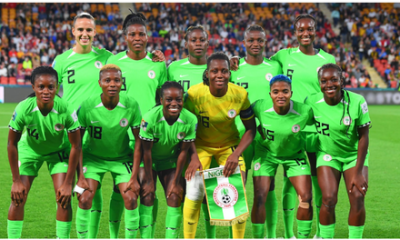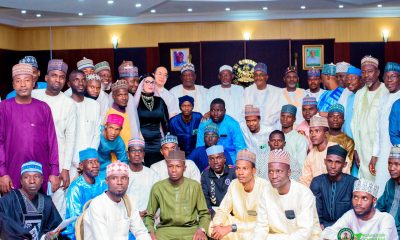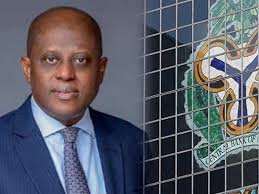Business
German govt expects another recession in 2024

Business
1 out of 4 Nigerians want to migrate-NBS
Business
FG, World Bank to provide jobs for 10 million youths in 5 years
Business
Dangote Refinery Launches Fuel Export to West Africa
Business
Naira depreciates again by 2.3% against dollar at official market
Business
CBN to Nigerians: Beware of fraudulent contracts, project funding claims
Business
Nigeria will be in trouble if states collect VAT – Tinubu’s tax team
-

 Football22 hours ago
Football22 hours agoInjury rules Boniface out until 2025
-

 News7 hours ago
News7 hours agoEFCC warns banks against fraudulent practices
-

 News6 hours ago
News6 hours agoNigeria’s Super Falcons Drawn Against Tunisia, Algeria, and Botswana in Group B of 2024 WAFCON
-

 News6 hours ago
News6 hours agoAgain, Naira gains massively against the US Dollars
-

 News6 hours ago
News6 hours agoNFF President, Gusau, elected 1st Vice President of WAFU B
-

 Education6 hours ago
Education6 hours agoJigawa sponsors 30 Engineering graduates to China
-

 News16 hours ago
News16 hours agoNavy arrests suspected oil thieves in Akwa Ibom
-

 News19 hours ago
News19 hours agoLabour Party Dismisses Allegations of Partnership with Tinubu for 2027 Elections
-

 Metro4 hours ago
Metro4 hours agoNigeria sharia police to raid betting shops after court ruling
-

 Health6 hours ago
Health6 hours agoConstant sexual intercourse does not prevent prostate cancer– urologist




























